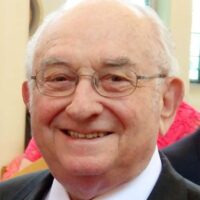 James F. Roth of Warminster, PA, died on his 96th birthday, December 7, 2021.
James F. Roth of Warminster, PA, died on his 96th birthday, December 7, 2021.
Born in Rahway, NJ, Jim was a member of the first graduating class of the Bronx High School of Science, graduating at age 15. He enlisted in the Navy at 17 and was sent to school at the University of Pennsylvania and then Midshipman School at Columbia University. While Jim was serving as chief navigator on LST 477 during the battle of Iwo Jima, the ship was blasted with a 500 lb. bomb and hit by a Kamikaze plane.
After being discharged from the Navy with the rank of LTJG, Jim returned to college, earning a B.S. in Physical Chemistry from the University of West Virginia and a PhD from the University of Maryland.
During his career with Monsanto in St. Louis, MO, and Air Products in Allentown, PA, where he served as chief scientist and director of corporate research, Jim received recognition for his achievements as the principal inventor of processes for the commercial production of acetic acid and the production of linear olefins used to make biodegradable detergents. He received numerous awards, including the Kokes Award from Johns Hopkins University, the Houdry Award from the Catalysis Society of North America, and the Industrial and Engineering Chemistry Award from the American Chemical Society. He received the first award ever given by the American Chemical Society for Achievement in Industrial Chemistry. He was inducted into the National Academy of Engineering and was cited by the Chemical Heritage Foundation as one of the leading American chemists of the twentieth century. Jim was the 1988 recipient of the Perkin Medal for his achievements in catalytic research, considered the highest recognition for chemical achievements in the U.S.
When he wasn’t working, he and his wife Sharon (Mattes) Roth shared a 52-year adventure of world travel, symphonies, museums, opera, and fine dining. They spent their first 18 years of retirement in Sarasota, FL, and the next 14 years in independent senior adult communities in Dallas, TX, and Warminster, PA. Jim was lovingly cared for in his final year by his wife Sharon and caregiver Daionna Combs.
He is survived by his wife; daughter, Sandy Freeman (Mickey) of Allentown; sons Ed Roth (Sue) of New City, NY and Larry Roth (Colleen) of St. Louis, MO; step-son Ladd Hirsch (Cindy), 10 grandchildren; and 8 great-grandchildren. He was predeceased by his step-daughter, Lisa Phillips (Jim), and his sister, Phyllis Davis.
To plant or send flowers to the family in memory of James Roth, please visit our flower store.
Source: https://obits.delvalcremation.com/james-roth.
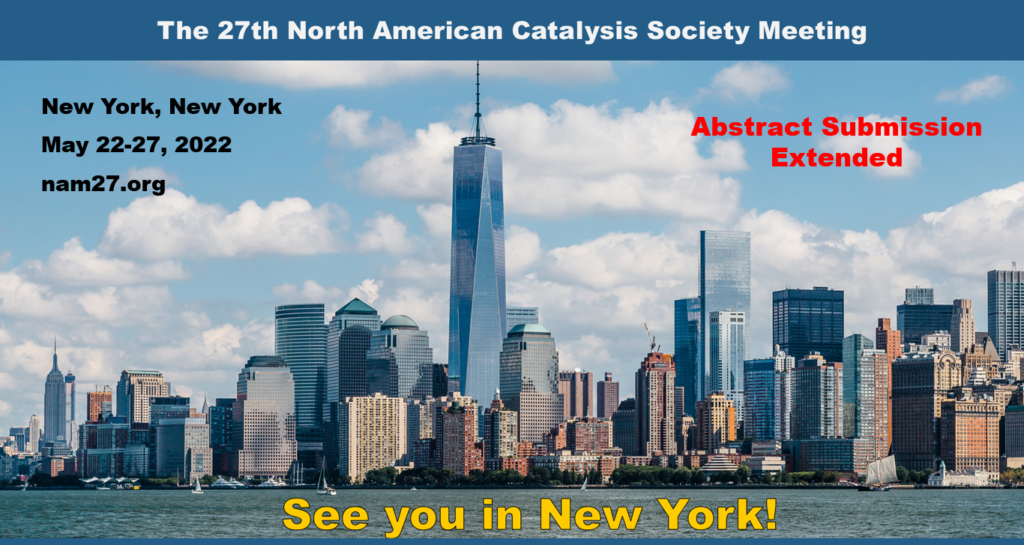
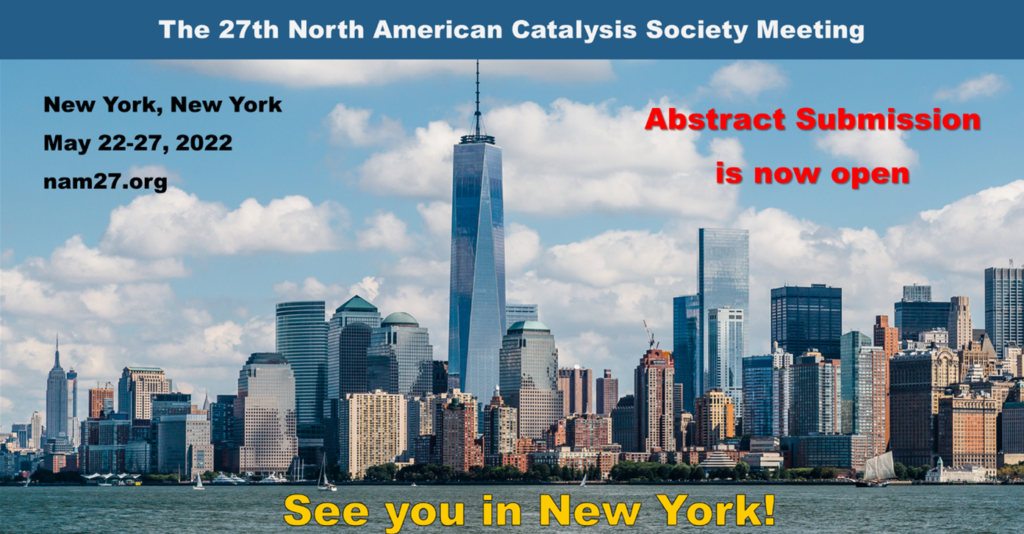
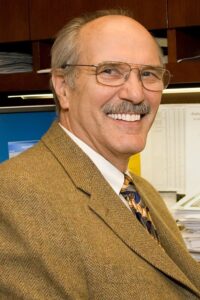 Professor W. Nicholas Delgass passed away peacefully at home on August 17, 2021 after a long and courageous fight with cancer to stay with us and to continue to care for us for as long as he could. He was cared for by his loving family, Betty, his wife of 54 years, and their two sons, Michael and Leif. Nick was born and raised in the East Coast, graduating from Staples High School in Westport, CT. He earned an undergraduate degree in Chemical Engineering and Mathematics from the University of Michigan (1964) and a Ph.D. in Chemical Engineering from Stanford University (1969) and then completed his post-doctoral fellowship at the University of California at Berkeley (1969). He started his academic career at Yale University, from where he moved to Purdue University in 1974. Nick had a distinguished 38-year career in Purdue’s School of Chemical Engineering, where he stayed active in research and mentoring even after his retirement in 2012 as the Maxine Spencer Nichols Emeritus Professor of Chemical Engineering.
Professor W. Nicholas Delgass passed away peacefully at home on August 17, 2021 after a long and courageous fight with cancer to stay with us and to continue to care for us for as long as he could. He was cared for by his loving family, Betty, his wife of 54 years, and their two sons, Michael and Leif. Nick was born and raised in the East Coast, graduating from Staples High School in Westport, CT. He earned an undergraduate degree in Chemical Engineering and Mathematics from the University of Michigan (1964) and a Ph.D. in Chemical Engineering from Stanford University (1969) and then completed his post-doctoral fellowship at the University of California at Berkeley (1969). He started his academic career at Yale University, from where he moved to Purdue University in 1974. Nick had a distinguished 38-year career in Purdue’s School of Chemical Engineering, where he stayed active in research and mentoring even after his retirement in 2012 as the Maxine Spencer Nichols Emeritus Professor of Chemical Engineering.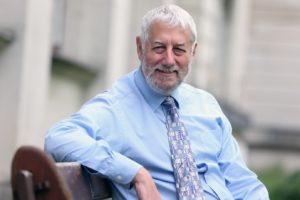
 I am pleased to announce that Professor Manos Mavrikakis of the University of Wisconsin is the recipient of the 2021 Robert Burwell Lectureship in Catalysis, sponsored by Johnson Matthey and administered by the North American Catalysis Society. It is awarded biennially in odd-numbered years. The award consists of a plaque and an honorarium of $5,000, which will be presented at the award banquet at the NAM27 meeting. An additional $4,500 is available to cover travelling expenses in North America. The awardee is expected to lecture at many of the local catalysis clubs.
I am pleased to announce that Professor Manos Mavrikakis of the University of Wisconsin is the recipient of the 2021 Robert Burwell Lectureship in Catalysis, sponsored by Johnson Matthey and administered by the North American Catalysis Society. It is awarded biennially in odd-numbered years. The award consists of a plaque and an honorarium of $5,000, which will be presented at the award banquet at the NAM27 meeting. An additional $4,500 is available to cover travelling expenses in North America. The awardee is expected to lecture at many of the local catalysis clubs.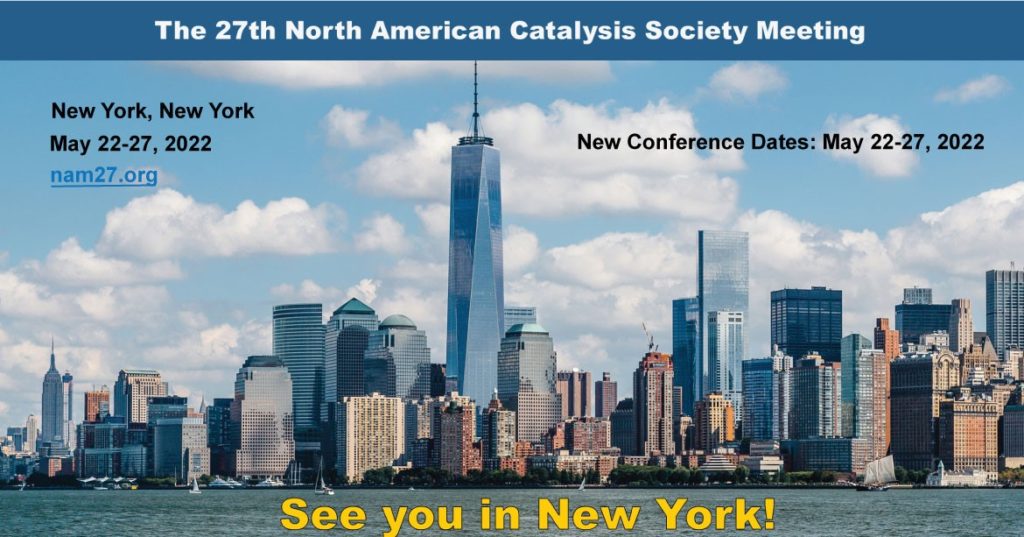 Dear Catalysis Community,
Dear Catalysis Community,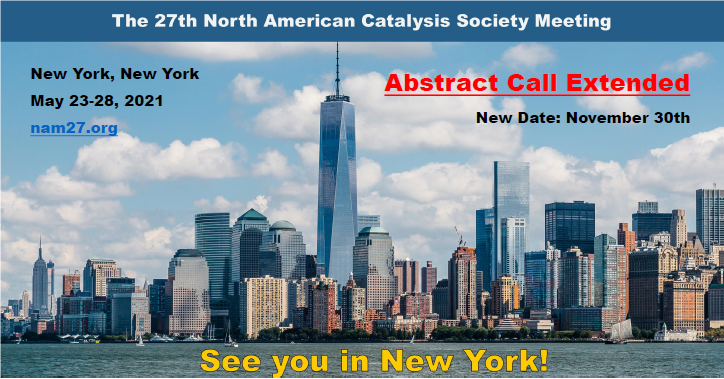 Dear Catalysis Community,
Dear Catalysis Community,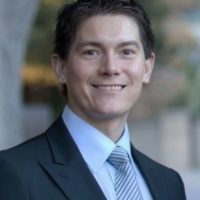
 I am pleased to announce the winners of the 2021–2022 the Paul H. Emmett Award in Fundamental Catalysis. This award recognizes and encourages individual contributions in the field of catalysis with emphasis on discovery and understanding of catalytic phenomena, proposal of catalytic reaction mechanisms and identification of and description of catalytic sites and species. The award winner must not have turned 46 on April 1st of the award year. The award consists of a plaque and an honorarium of $5,000. The Paul H. Emmett Award in Fundamental Catalysis is sponsored by the W.R. Grace
I am pleased to announce the winners of the 2021–2022 the Paul H. Emmett Award in Fundamental Catalysis. This award recognizes and encourages individual contributions in the field of catalysis with emphasis on discovery and understanding of catalytic phenomena, proposal of catalytic reaction mechanisms and identification of and description of catalytic sites and species. The award winner must not have turned 46 on April 1st of the award year. The award consists of a plaque and an honorarium of $5,000. The Paul H. Emmett Award in Fundamental Catalysis is sponsored by the W.R. Grace